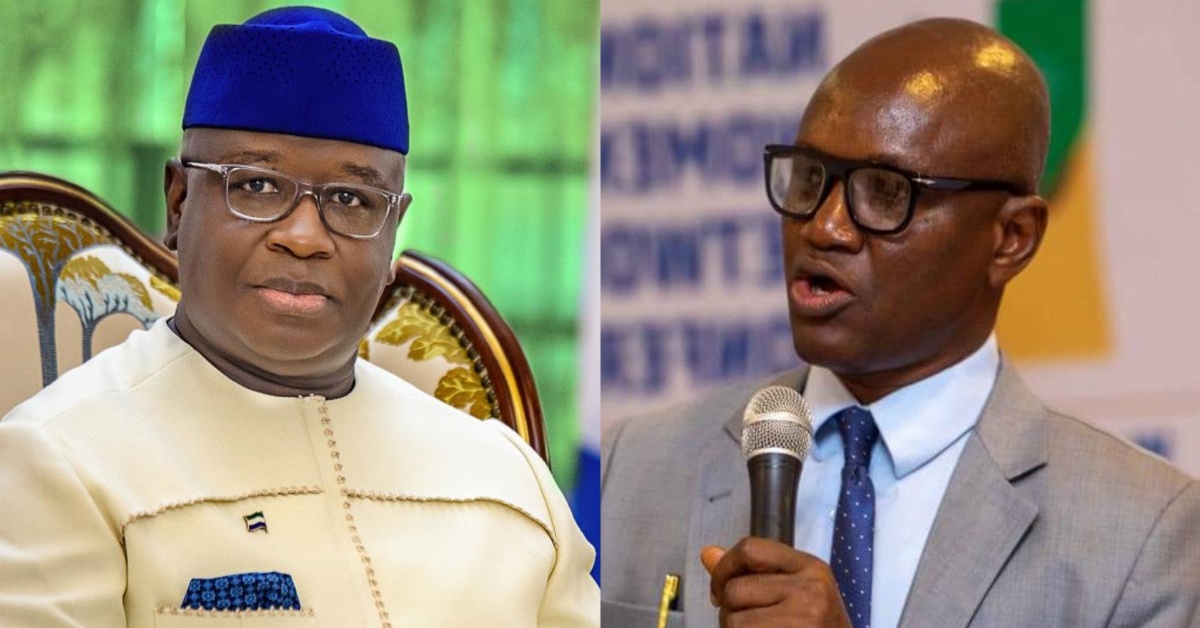Sierra Leonean BBC journalist, Umaru Fofona, has provided insights to the Sierra Leone government on tackling the nation’s economic challenges.
Drawing parallels from household financial management, Fofona highlighted in a Facebook post that just as families might cut down on unnecessary expenses during tough times, a country should similarly prioritize its spending.
He emphasized the need for the government to minimize costs by eliminating redundancies and avoiding the creation of non-essential roles that demand significant financial upkeep. Additionally, Fofona advised stringent monitoring of state officials to deter needless international travels, ensuring that everyone is aligned in addressing the economic crunch.
Fofona wrapped up his statement asserting, “Good leaders lead by example.” He acknowledged the global economic downturn affecting every nation but criticized leaders who merely vocalize concerns without demonstrating austerity in their actions.
He argued that true leadership is not just about acknowledging hardships but living through them in solidarity with the people.












THE PROS AND CONS OF BIG GOVERNMENT: A GLOBAL AND NATIONAL ECONOMIC PERSPECTIVE:
BY: Pete Menjor
In times of economic crisis, the question of government size as some have discussed through various media outlets becomes a pivotal topic. Should our government expand and become BIG to address the challenges posed by economic downturns, or should it remain lean and hands-off? The answer to this question is complex, with both advantages and disadvantages to consider. In my humble opinion, I will explore the implications of creating a big government during an economic crisis, taking into account both the global and our national economy.
THE PROS:
One of the primary advantages of a big government during an economic crisis is its ability to stimulate economic growth. Through increased public spending on infrastructure projects, job creation programs, and targeted investments, the government can inject much-needed funds into the economy. This can boost demand for goods and services, leading to increased production and job opportunities.
Big governments often provide robust social safety nets, including unemployment benefits, healthcare, and food assistance. During an economic crisis, these safety nets can be a lifeline for individuals and families facing financial hardship, and helping to prevent poverty and homelessness.
Large governments can stabilize volatile financial markets. They can implement regulatory measures to prevent fraud and excessive risk-taking, ensuring the long-term stability of the financial sector.
In the global context, big governments can play a crucial role in shaping international economic policies and addressing global challenges. They can provide aid to struggling nations, participate in international negotiations, and contribute to global economic stability.
THE CONS:
One of the criticisms of big government is the potential for bureaucratic inefficiencies and waste of resources.
Large bureaucracies can sometimes slow down decision-making and hinder the implementation of effective policies.
Expanding government during an economic crisis often requires substantial borrowing or taxation increases. This can lead to concerns about long-term fiscal responsibility, as high levels of debt may burden future generations and limit the government’s ability to respond to future crises.
A big government’s extensive involvement in the economy can crowd out private sector initiatives. Excessive regulation and government ownership of industries may stifle innovation and hinder entrepreneurship.
The size and role of government can be a contentious issue, leading to political polarization. Disagreements over the extent of government intervention can hinder cooperation and delay effective policy implementation.
In conclusion, the decision to create a big government during an economic crisis is a complex one that depends on various factors, including the severity of the crisis, the nation’s economic structure, and political considerations. While a big government can provide essential support, stimulate growth, and protect vulnerable citizens during times of hardship, it must be balanced with careful fiscal management to avoid long-term economic consequences.
Furthermore, the global context cannot be ignored in an increasingly interconnected world, we (Sierra Leone) must consider its role in the global economy and work collaboratively to address shared challenges. Big governments can play a vital role in shaping a more equitable and stable global economic landscape.
Ultimately, the pros and cons of a big government must be weighed carefully, with a focus on achieving a balance that promotes economic recovery and stability while preserving the principles of fiscal responsibility and individual liberty. It is a delicate dance that requires thoughtful policymaking and vigilant oversight to ensure the best outcomes for both our nation and the global economy.
PJM
I go by this simple mechanism recommended by Fofanah . Government should be seeing cutting down on expenditure seen in the fragmentation of MDAs, creation of more embassies, creation of new commissions to name but a few.
If the president is concerned with what Sierra Leoneans are going through, these measures should be painfully adopted by the government. The late Tanzanian president changed the country’s economic growth in 5 years